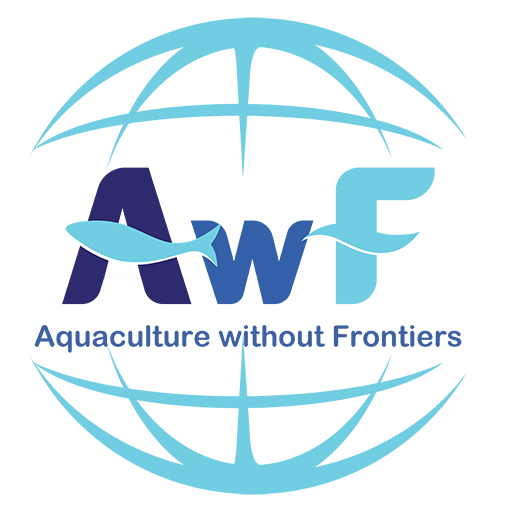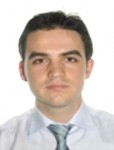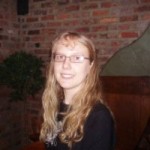Aims and Objectives
To raise knowledge and awareness of volunteer issues in aquaculture and to find and promote ways of achieving mutual benefit within the industry, the AwF Volunteer’s Network will aim to:
- encourage multi-disciplinary roles in aquaculture projects
- encourage critical analysis of the way that volunteering influences participation, decision-making and benefits in aquaculture
- consider the holistic approach to knowledge/education by infusing a new perspective to shape a better future for communities
- encourage further research and analysis on volunteer status in Aquaculture equally in public and private sector and in the services area
- create a long-term sustainable Network which is well funded and resourced, ensuring lessons learned from previous stop/start attempts
- consider a community of practice which will have Local, Area/Regional and Global outcomes
- recognise the need to educate and support volunteers, and foster the development of leaders within AwF and the aquaculture industry
- create programs to educate volunteers and foster the development of leaders
- ensure that all AwF projects consider demonstrated benefits for all
- create positive, clear and concise messages about the benefits of equality in aquaculture and help achieve them
- be inclusive and aware of non-English speaking volunteers and assist in bridging communication gaps
- be transparent in all activities
—————-
Committee
Ignacio Llorente
Dr. Ignacio Llorente is an Assistant Professor in the Business Administration Department at the University of Cantabria (Spain). He graduated as an economist in 2008, an MBA in 2009, an Environmental Impact specialist in 2010 and finally, obtained his P.h.D. in Business Administration in 2013.
Ignacio develops his research work in the aquaculture sector in several research lines: economic management, business competitiveness, consumers behaviour and market research. He is author and co-author of papers in international scientific journals, industry magazines and scientific books. He also develops consultancy works applied to the primary sector and the food industry, mainly in the aquaculture sector, and has collaborated in projects and as an expert with regional, national and international institutions, such as the Spanish government, FAO and the European Union.
Stacey Clarke
Stacey Adele Clarke is currently a marine planning officer for the Marine Management Organisation (MMO), a government body in England. She is sector lead for the MMO for aquaculture and produces planning policy for maritime aquaculture, as well as being part of the English Aquaculture Working Group.
Stacey undertook her undergraduate degree (biology with geology) at Keele University and post-graduate (marine environmental management) at York University. Her relevant background experience includes administrating Registration of first sale fish Buyers and Sellers (RBS) scheme for England, liaison with marine industry and regulatory bodies, and maintaining live fish in public aquaria.
One of her current interests is in enabling the English/Welsh aquaculture industry to grow and potentially getting involved in aquaponics, combining her animal husbandry (tortoise/turtle and fish) skills with growing a commercial vegetable product (salad or vegetables). Stacey.clarke@marinemanagement.org.uk
Paul Liew – Secretariat
Paul’s background is in Food Technology and Administration Management, having worked in both private and government sectors. He managed an abalone cannery for 7 years which gave him skills in HACCP training, QC management, seafood handling practices and stakeholder liaison. At present he is undertaking a degree in Aquaculture and aims to promote the benefits of Aquaculture within the community. As AwF Secretariat his role is to maintain excellent communication between the volunteer network and the various projects undertaken by AwF.
—————-
Roles and Responsibilities
Network Committee Role and Responsibilities
The AwF Volunteer’s Network Committee is responsible for managing the Network on behalf of the members. These responsibilities include:
- Developing policies and procedures for the Network
- Regularly communicating with Network members and responding to feedback
- Developing and managing external stakeholder relationships in respect of the Project (Stakeholders meaning local authorities and the community in that particular country)
- Reporting to AwF Board and other Committees as necessary and as agreed
- Preparing an annual action plan for the Network
- Assisting with obtaining resources/funding for each particular project and ensuring that any financial and legal matters are properly managed
- Planning succession and conducting induction to newly elected Committee members
- Ensuring that all members of the Committee act as leadership role models
- Making decisions in the best interest of the Network and not for individual gain
- Promoting, at every opportunity, AwF and the AwF Volunteer’s Network, including: attendance at specific events and potential sponsorship involvement
- Promotion of and planning publicity schedules for issues relating to the network
- Assisting AwF regarding materials development (including brochures, banners, and signage) and managing the AwF Volunteer’s Network website within AwF website and agreed social media
- Finalising publicity and promotion materials for the Network (in conjunction with AwF ED), ensuring that protocols have been adhered to regarding approval of media releases, etc.
- Maximising cross promotional opportunities with all AwF activities.
Individual Committee Members’ Roles and Responsibilities
The Committee should operate as a team, draw on the skills and talents of each member, and work toward common goals to ensure Network success. Effective Committee members should have:
- a commitment to the Network
- sufficient time to devote to the Committee
- an understanding of the role of the Committee and their role within it
- leadership skills and willingness to accept responsibility
- listening skills
- the ability to use the technology the network uses to communicate to its members
Chair’s Role and Responsibilities
The Chair/s is/are responsible for:
- Providing leadership and direction to the Committee
- Ensuring that the Committee fulfils its responsibilities for the governance and success of the Network
- Working to optimise the relationship between the Committee, AwF Board, other AwF Committees and Network members
- Achieving the Network’s agreed aims, objectives and annual action plan
- Acting as spokesperson/people for the Network
- Working to maintain key relationships within and outside of the Network.
Secretariat’s Role and Responsibilities
The Secretariat is responsible for:
- Documenting, maintaining and communicating the activities of the Committee.
- With Chair/s and fellow AwF Volunteer’s Network Committee members maintain a detailed data base of AwF ’s Volunteer’s Network
- With Chair/s of AwF Volunteer’s Network Committee organise meetings and ensure there are accurate Agenda’s, Minutes and other relevant paperwork which are suitable to the AwF Board.
- Maintaining communications with Volunteer’s Network – into and out of AwF organisation. Liaising with ED of AwF and Chair/Committee AwF Volunteer’s Network and organising regular messaging to Network members and encouraging two way communication.
- Organising reports, articles, photographs, videos, etc. of activities of AwF Volunteer’s Network is an area for this role as all Networks are to be encouraged strongly to promote all the work they do via AwF
General
- As with all volunteer work it will be up to you to determine what time constraints are applied but AwF simply ask that you stick to timelines which are agreed and keep relevant people informed if there are any issues or problems
- Documentation and transparency is important to AwF
- Communication channels are essential to AwF so creating a regular process would be favoured



